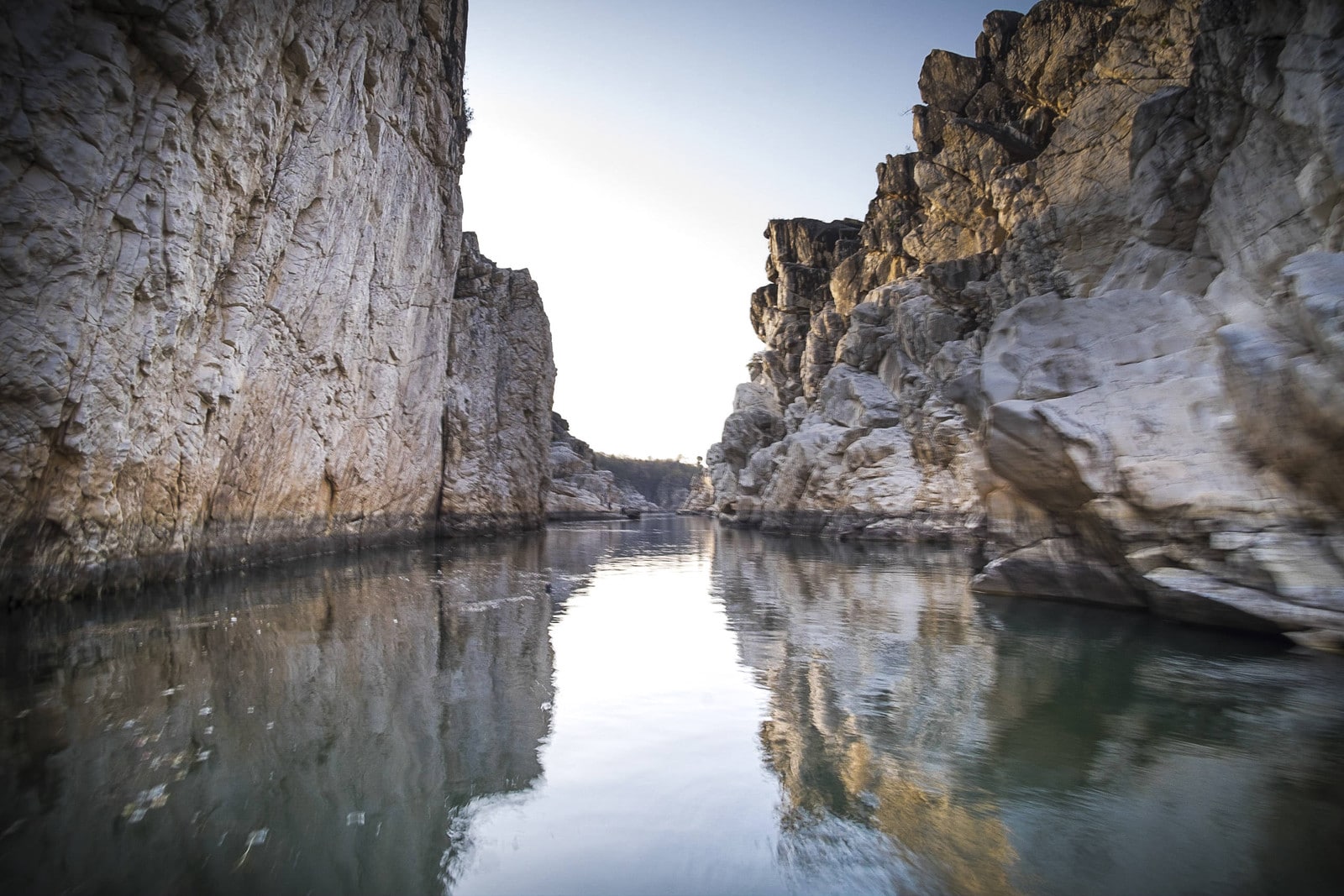
नर्मदा Narmada
The Westward Flowing Sacred River
Geographical Details
Basic Information
- Source:
- Amarkantak, Madhya Pradesh
- Length:
- 1,312 km
- Basin Area:
- 98,796 km²
- Mouth:
- Arabian Sea (Gulf of Khambhat)
- States:
- MP, Maharashtra, Gujarat
Sacred Geography
- • Amarkantak: Sacred source, origin of three rivers
- • Omkareshwar: Jyotirlinga temple on island
- • Maheshwar: Holy city with ghats
- • Jabalpur: Marble Rocks and Dhuandhar Falls
- • Bharuch: Ancient port city
- • Shoolpaneshwar: Temple in Gujarat
Cultural & Religious Significance
The Purifier
Narmada is considered one of the most sacred rivers in Hindu tradition. Unlike other rivers that flow eastward, Narmada flows westward, making it unique. According to legend, the river was born from Lord Shiva's perspiration during his cosmic dance. The river is believed to be so pure that even seeing it can cleanse sins. The Narmada Parikrama (circumambulation) is considered one of the most sacred pilgrimages, taking 3 years, 3 months, and 13 days.
Sacred Practices
- • Narmada Parikrama: Sacred circumambulation
- • Narmada Stones: Natural Shiva lingas
- • Ganga Aarti: Evening prayers at ghats
- • Kartik Purnima: Sacred bathing festival
Jyotirlinga Temples
- • Omkareshwar: On Mandhata island
- • Maheshwar: Ancient temple complex
- • Amarkantak: Source temple
- • Shoolpaneshwar: In Narmada valley
Major Tributaries
Left Bank Tributaries
- Hiran: Major tributary in Madhya Pradesh
- Tawa: Important tributary with dam
- Shakkar: Flows through MP
Right Bank Tributaries
- Orsang: Flows through Gujarat
- Amaravati: Tributary in MP
- Kolar: Small tributary
Complete Narmada Information
Download a comprehensive PDF with detailed information about Narmada, including parikrama route, temples, and cultural significance.
Download Narmada PDF